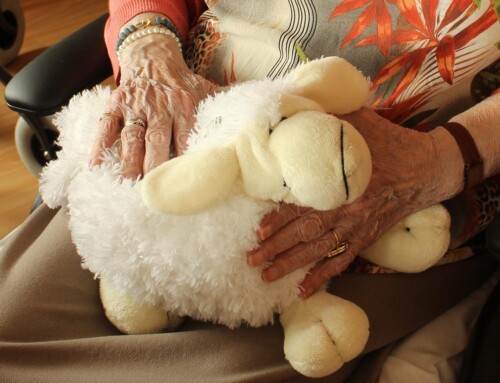Too many of us have had to watch a loved one affected with Alzheimer’s disease struggle to cope with their daily life. We see the confusion, or the loss of memory, the disorientation. We can easily recognize the diminishing of mental capabilities as the condition progresses. However, many people have also wondered how their loved one with Alzheimer’s is experiencing the disease – how they feel, and how the world looks to them. In this blog we look at dementia from the patient’s perspective.
Empathizing with what our loved one is going through gives us a compassionate and patient viewpoint through which to operate day to day.
Comprehending the Alzheimer’s Patient Experience
The most productive way to understand how to speak and interact with a dementia or Alzheimer’s patient is to imagine yourself in their position. Evaluate the situation and consider how you would feel if you were the one in their seat – not recognizing people around you, or people telling you that your spouse has passed away when you don’t remember it happening. By thinking about how you might feel if you were in their shoes, it may be easier to have patience day to day.
Here are some of the more common emotions that Alzheimer’s patients face.
Embarrassment and Shame: You know that feeling when a word escapes you, and you can’t complete your thought? Or when someone greets you who obviously knows you and knows your name, but you can’t place how you know them? This is a dementia patient’s everyday experience – forgetting how to perform basic tasks, or not being able to find their room in their residence. They know they should know these things, but they don’t – leading to embarrassment. You can ease their feelings by empathizing, such as saying “It’s no big deal, I sometimes get confused too! ” Then reintroduce yourself, help them to finish their task, or walk back to their room with them.
Anxiety and Worry: When people know they are forgetting something, it can stoke anxious feelings. Whether we are afraid that we have forgotten an important appointment, missed a birthday, or didn’t remember to take our medication – that gnawing feeling of “what am I forgetting?” can be very stressful. You can help by writing important dates and appointments on a large calendar for reference, and go over it with them frequently. They may want you to help them go through their mail, check their medication renewals, or check to make sure a bill was paid – do whatever it takes to ease their mind.
Loneliness and Isolation: It is easy to escape into your own thoughts when feeling like no one understands what you are going through. Because patients with Alzheimer’s or dementia experience life moment by moment, you can remind them often that you are there for them, and that they are not alone. Assure them of how much you love them, surround them with photo frames, cards and messages, and mementos of events and people who were important to them. This will inspire and encourage happy memories, giving them a sense of belonging and purpose and feeling less isolated. If you opt to to place your loved one in a memory care facility, be sure that they provide an interactive and supportive environment. It is essential that your loved one feels human connection on a daily basis.
Fear and Paranoia: Sadly, patients with dementia can feel extreme paranoia and fear as well. Imagine making your way through life not knowing who the people around you are, why they are making you take these medications, or why you don’t recognize your home. While you may not be able to alleviate fear entirely, treating them with an understanding attitude can help a lot. Understand that they are afraid, and speak calmly to alleviate their fears.
Dementia and Alzheimer’s disease can steal close relationships and destroy any sense of personal security. If you and your loved one are having a hard time relating, consider a tour of the memory care facility at A Banyan Residence. Our staff is knowledgeable about what your loved one is experiencing, but we also have strong empathy and compassion for what they are experiencing. Come in today and let us help.








